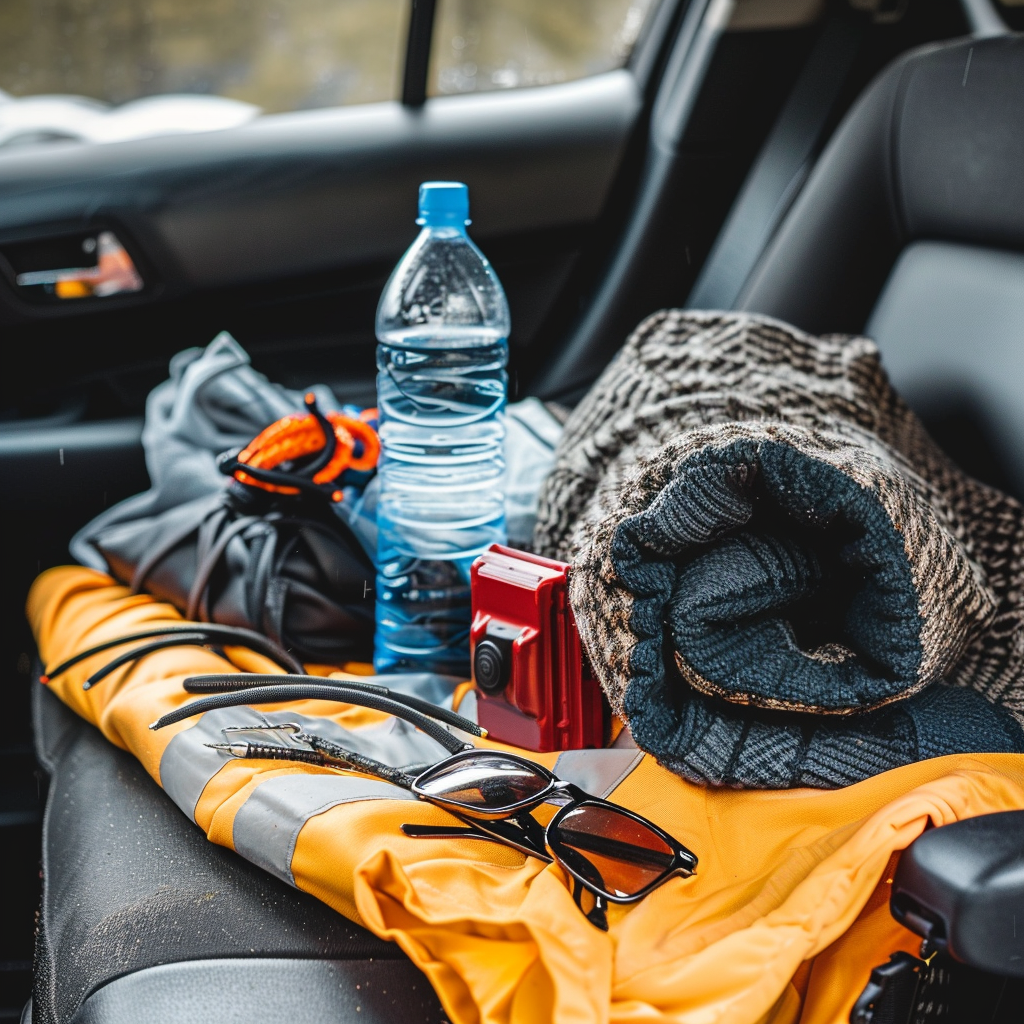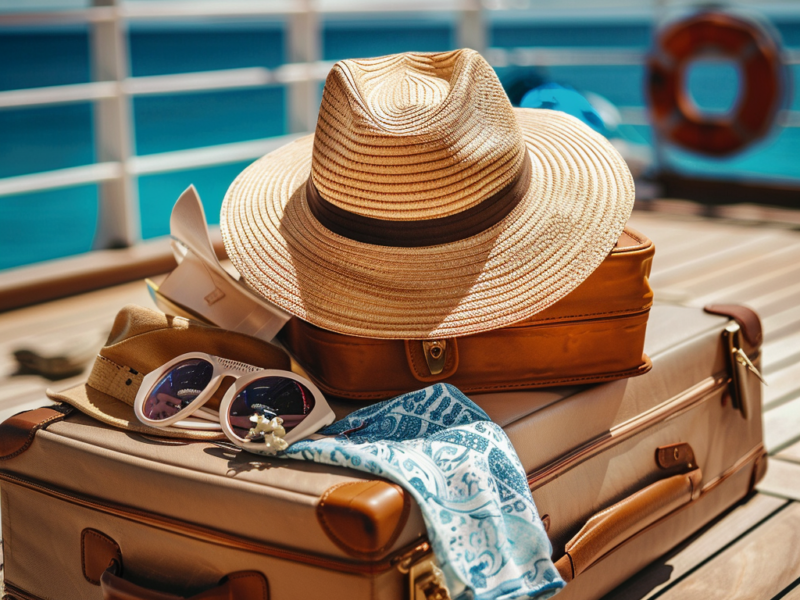This comprehensive guide jumps into the must-haves for any vehicle, making sure you’re prepared for your daily commutes, long journeys, or the unexpected. From safety gear to comfort items, we’ve covered everything you need to make your driving experience as smooth and secure as possible.
Safety First: The Non-Negotiables for Every Car
Emergency Kit
An emergency kit is the most important item for any vehicle. This kit should include:
- First Aid Supplies: Band-aids, antiseptic wipes, gauze, and tape for minor injuries.
- Tools: A multi-tool or a basic set of screwdrivers and pliers can be lifesavers in various situations.
- Flashlight with Extra Batteries: Essential for nighttime emergencies or if you need to signal for help.
- Cash: Your phone might be dead, you may. have forgot your wallet. Cash will get you that extra gas or ride home you need.
- Water: if you’re in an emergency, water could literally save your life
- Blanket: If you have to spend the night and your car won’t turn on, if it’s cold you’ll be glad you had this.
I also like to keep some hand sanitizer somewhere in the car. It’ll help clean your hands after shopping, but could clean a wound in a pinch.
Roadside Assistance Gear
Prepare for the unexpected with roadside assistance items:
- Jumper Cables: A dead battery can happen to anyone, so having jumper cables ensures you’re not left stranded.
- Tire Inflator and Sealant: For quick fixes on minor tire punctures, these can get you to a repair shop.
- Reflective Warning Triangles: These increase your visibility to other drivers, keeping you safer while you wait for help.
It happens to everyone. The dome light was left on, or you ran over a nail. Having these things on hand makes it easy to fix your problems.
Maintenance Must-Haves: Keeping Your Car in Top Shape
Spare Tire, Jack, and Lug Wrench
A flat tire is a common issue, and having the means to replace it yourself can save time and hassle. Ensure your spare tire is in good condition and that you know how to change a tire.
Most cars come with these items. But a lot of modern cars have run-flats, or fix-a-flat liquid and an air pump.
Engine Oil and Coolant
If you got an old car with known issues, running low on oil or coolant can lead to serious engine damage. Keep a quart of your car’s recommended engine oil and a jug of coolant for top-ups between services. May want to check out some new safe cars here from triple A.
Comfort and Convenience: Enhancing Your Driving Experience
Cleaning Supplies
It’s nice to have something to quickly clean up spilled coffee or food. Most car cleaning supplies have wipes – from windex for your windows, and armor all for your plastics. Or, simply bring some baby wipes to help clean minor spills.
Navigation Tools
While many drivers rely on smartphone apps for navigation, having a physical map or a car charger for your devices ensures you’re never lost, even if your phone dies.
Personal Essentials: For Your Well-being on the Road
Water and Non-Perishable Snacks
Staying hydrated and having snacks on hand can be a lifesaver on long trips or in case of traffic jams.
Sun Protection
Sunscreen, sunglasses, and a hat can protect you from the sun’s rays during long drives or when you’re stuck in traffic. I like to keep an extra pair of sunglasses in the glasses holder, center console, or glove box, just in case.
Seasonal Items: Preparing for Weather Changes
Winter Gear
If you live in or travel to colder climates, include:
- Ice Scraper and Snow Brush: Essential for clearing your windshield and windows.
- Blankets: For keeping warm if you’re stranded in cold weather.
Summer Essentials
- Portable Fan: A small battery-operated fan can help keep you cool.
- Extra Water: Dehydration is a risk in hot weather, so extra water is a must.
Conclusion
Equipping your car with these essentials will prepare you for most situations you encounter on the road, or broken down. While this list might seem extensive, having these items can dramatically improve your safety, comfort, and convenience while driving. It could literally save your life!
Regularly check your supplies to replace or refill as necessary, and adapt your kit to fit your specific needs and local climate. Safe travels!

